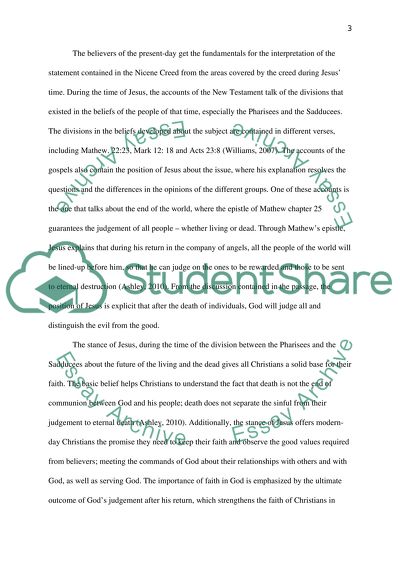Cite this document
(“'He will come again to judge the living and the dead' Why is this Essay”, n.d.)
'He will come again to judge the living and the dead' Why is this Essay. Retrieved from https://studentshare.org/religion-and-theology/1494688--he-will-come-again-to-judge-the-living-and-the
'He will come again to judge the living and the dead' Why is this Essay. Retrieved from https://studentshare.org/religion-and-theology/1494688--he-will-come-again-to-judge-the-living-and-the
('He Will Come Again to Judge the Living and the dead' Why Is This Essay)
'He Will Come Again to Judge the Living and the dead' Why Is This Essay. https://studentshare.org/religion-and-theology/1494688--he-will-come-again-to-judge-the-living-and-the.
'He Will Come Again to Judge the Living and the dead' Why Is This Essay. https://studentshare.org/religion-and-theology/1494688--he-will-come-again-to-judge-the-living-and-the.
“'He Will Come Again to Judge the Living and the dead' Why Is This Essay”, n.d. https://studentshare.org/religion-and-theology/1494688--he-will-come-again-to-judge-the-living-and-the.


